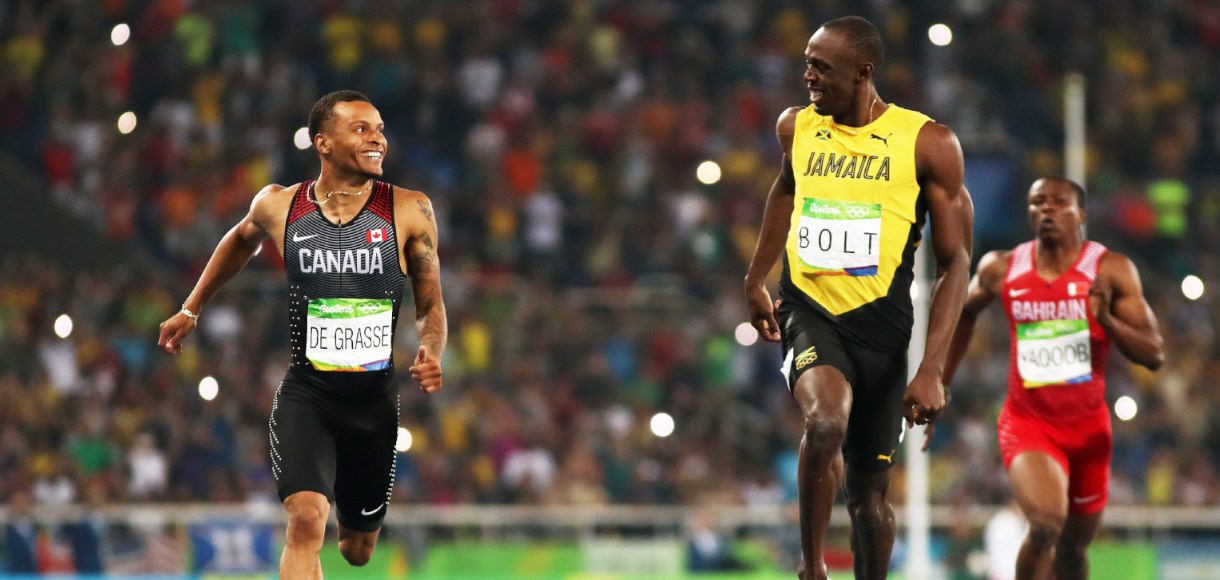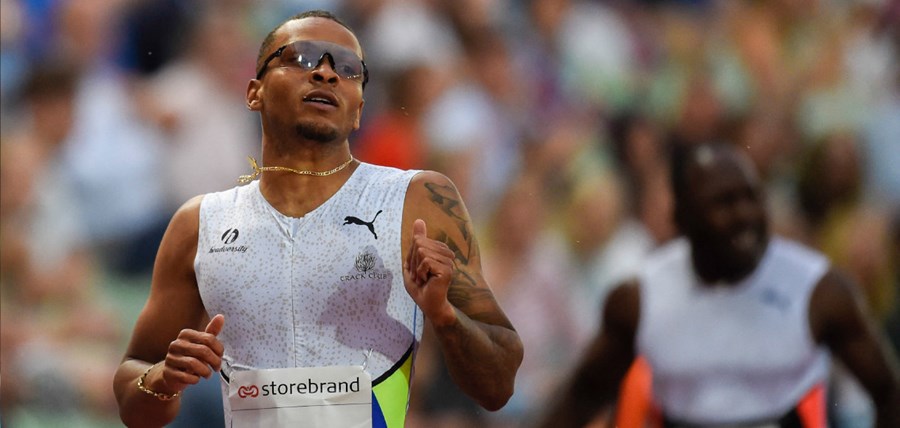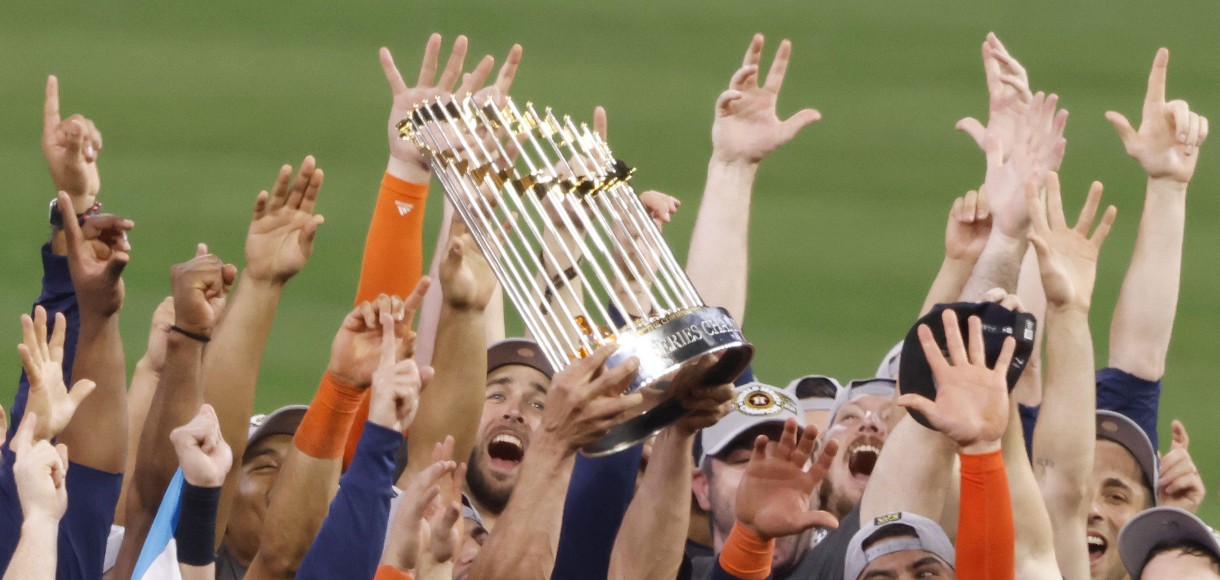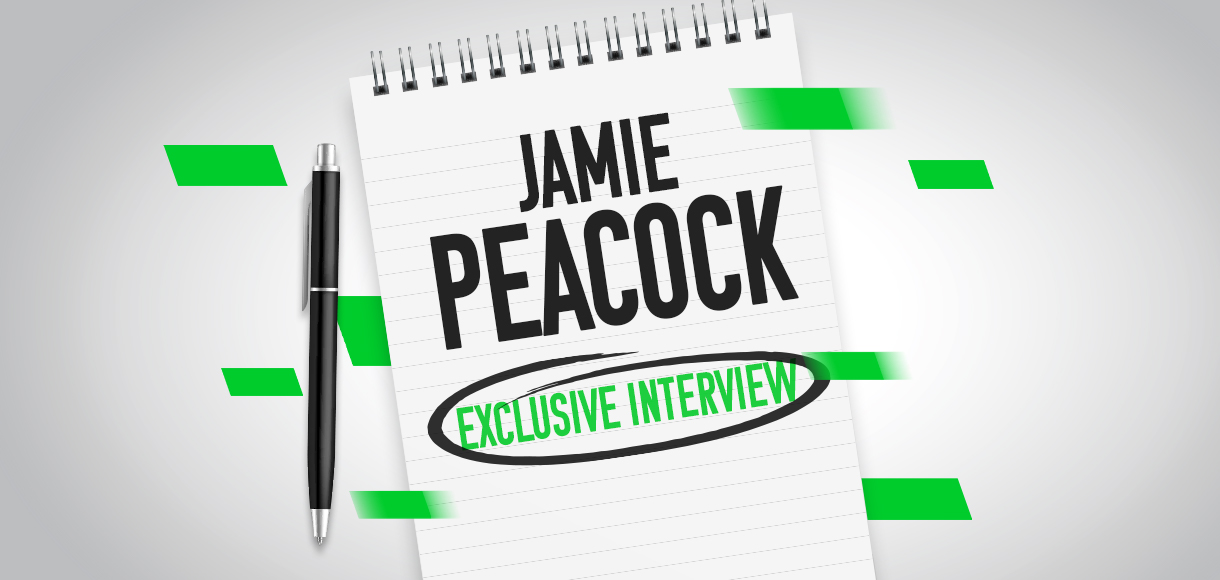Andre De Grasse on chasing Bolt and carrying Canada's Olympic hopes
 Source: Getty Images
Source: Getty Images
The three-time Olympic medallist relives his famous showdown with Usain Bolt in 2016 and his reveals his pride in representing Canada in Tokyo this summer.
It’s the second 200m semi-final at the 2016 Olympic Games in Rio, and Usain Bolt is coasting.
With 50m to go and a place in the final in his sights, the fastest man on the planet slows down, expecting yet another comfortable win.
Suddenly, alongside him emerges 21-year-old Andre De Grasse.
The Canadian, competing at the Games for the first time, catches Bolt, stares him down, and dips for the finish line, forcing the Jamaican to make a final push for first place. The pair share a cheeky grin as they cross the line neck-and-neck, knowing they will meet again in the final the following day.
“It was like we were just out there having fun,” says De Grasse.
“We didn’t expect to see Usain in the semi-finals. My coach had a strategy: ‘You're going to have to make him run. We’ve got to make him work, we can’t make it too easy for him.’
“I ran a good, hard 150m, I looked to my side and I was like: ‘OK, he's starting to slow down, and I'm close to him.’
“That was really just me going out there having fun, and just trying to do my best.”
It’s now 2021, and De Grasse is 26, and in the final stages of preparation for his second Olympics in Tokyo.
After going on to win 200m silver and 100m bronze – as well as a bronze in the 4x100m relay – in Rio, he is among the favourites in the sports betting to claim a medal in both individual events at this year’s Games.
Given his impressive performance in 2016 and the inevitable comparisons with Bolt that followed, expectations are understandably higher for three-time medallist this time around.
“I think I have done a good job of coping with that [pressure] because I've had that experience from 2016,” he says.
“I feel like I have a lot more experience on my side. I know what to expect, whether that's warming up, going to the call room or going through the rounds.
“It's kind of a strategy, where you have to conserve energy so that when you get to the finals, you can have a personal best.
“I'm just hoping to keep that in my back pocket and that's going to help me towards these Games.”
It’s a strategy that has served De Grasse well. He has built a reputation for producing his best performances in the biggest races, having run a personal best time of 9.91 seconds in the 100m final in Rio and set a Canadian 200m record of 19.80 seconds in that semi-final against Bolt.
He followed up his success in 2016 by claiming two more medals at the 2019 World Championships in Doha – again, silver in the 200m and bronze in the 100m.
 Source: Getty Images
Source: Getty Images
De Grasse arrives in Tokyo as the face of Canadian athletics, and is excited to carry the hopes of his home nation.
He currently lives in the United States with his partner Nia Ali, an American hurdler who won 100m hurdles gold at the 2019 World Championships, and their three-year-old daughter, but says every trip back north of the border inspires him on the track.
“People say: ‘What does it feel like to have the weight of the country your shoulders?’,” he says. “It just feels awesome that people would say that because I never realise how many kids and people I inspire back home.
“You never really realise that until you go to an event or show up at a kid's school and you're like: ‘Oh, wow, all these people are inspired by my performances and what I've done for the country.’
“I know my country put that pressure on me. They always believed that I could do it, people back home.
“I try to go out there, have pride and do my best, and try to just make myself, my family and my country proud. It's just really amazing to run for a country like Canada.”
His haul of three medals means that after just one Olympic appearance, De Grasse is already one of the most successful sprinters Canada has ever produced.
A win in Tokyo, however, would see him become just the second Canadian ever to claim gold in an individual sprint event at the Olympics, after Donovan Bailey triumphed in the 100m at the 1996 Games in Atlanta.
De Grasse is in regular contact with the former Olympic champion, and says support from Bailey and fellow 4x100m relay gold medallist Bruny Surin has given him a boost.
“Donovan messages me, Bruny Surin messages me all the time, so it's pretty awesome that the people before who have done it are rooting for me,” he says.
“I met Donovan back in 2015 when I won the Pan American Games in Toronto. And then I had a little event in 2016, I invited him and he came out. It was pretty cool, pretty awesome to talk to him and hear stories about back when he was running.
“I hear it in the media all the time, him rooting for me and telling people that I’m going to do great things. So that really inspires me and keeps me focused.”
Whatever happens in Tokyo, De Grasse’s place in Canadian athletics history is secure, and his battle with Bolt in 2016 remains one of the enduring memories of those Olympic Games.
But, though he is comfortable with what he has achieved, he is confident in his ability to go one step further this summer.
“I feel like I've accomplished so much in my sport or in life,” he says. “I try to be optimistic and be positive and tell myself: ‘Hey, just do your best.’
“That’s all I can really do.”





































